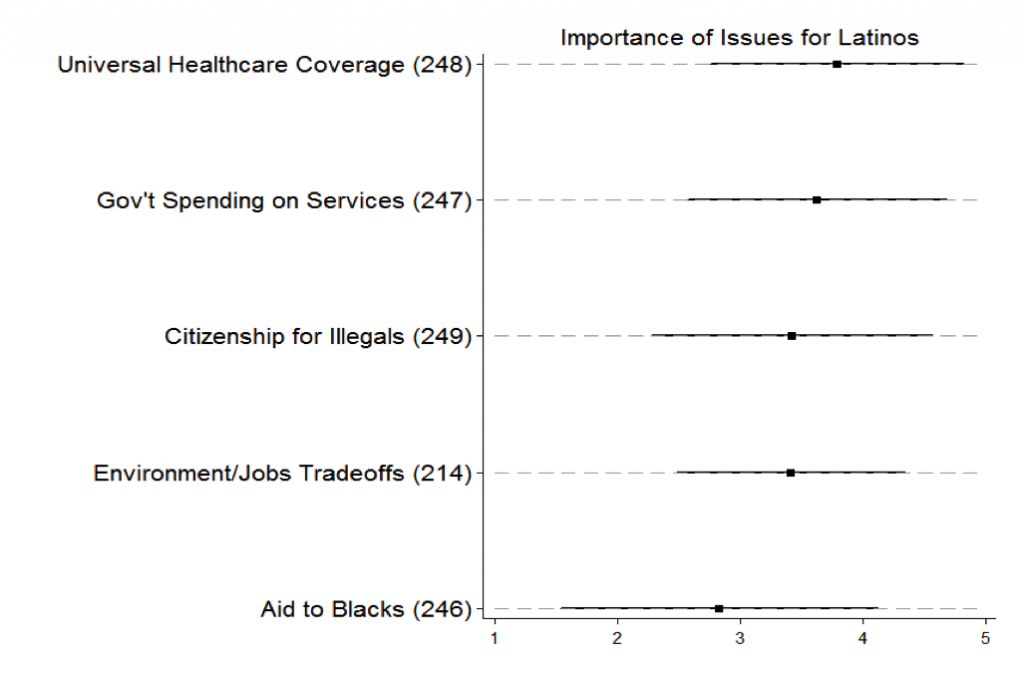
Latinos living in the United States comprise the largest number of immigrants of any racial or ethnic group – and for this reason, many Americans presume that immigration is the issue that matters most to Latino citizens and residents. But is that true? Do Latinos themselves view immigration as their top concern, and if not what other issues are high on their political agenda? My research tackles this question, which is important for understanding the potential political influence of the largest and fastest growing minority group in the United States.
The Challenge of Identifying Latino Priorities
Latinos are a very diverse people. They are identified as a group not by race but through shared language and culture. More generally, however, Latinos have little in common. They have varied physical appearances and, more important, originate from different countries and have distinct histories and experiences. Dissimilarities among Latinos living in the United States have made it difficult for anyone, including group leaders, to identify and articulate a united, sustained set of issue priorities.
Many suppose that all Latinos care passionately and primarily about immigration, an emotional and complex issue in America. Repeatedly in recent times, anti-immigrant proposals have led Latinos and their supporters to organize marches and protests to oppose such measures. The visibility of these public gatherings gives the impression that immigration is the top priority for Latinos. However, media visibility is not the same as widespread social perceptions. A close look at the issues that actually matter most to Latinos reveals a different story.Previous research in this area has often discussed issues that should matter to the Latino community, rather than taking nuanced steps to figure out what people really think. When scholars examine the opinions of Latinos comprehensively – and tease out the preferences of both ordinary Latinos as well as elites – immigration turns out not to be the top concern.
Issues of Personal Importance – And What Government Should Address
The figure displayed here is based on surveyed nationwide, representative responses to the 2008 American National Election Study. The figure displays answers from Latinos to a set of questions about how important various issues are to them personally. Notably, Latinos rank universal healthcare coverage as the most important issue, followed by government spending on social services. The issue of immigration – the survey asked specifically about the importance of providing citizenship for illegals – ranks third for Latino respondents overall.


 Research to Improve Policy: The Scholars Strategy Network seeks to improve public policy and strengthen democracy by organizing scholars working in America's colleges and universities. SSN's founding director is Theda Skocpol, Victor S. Thomas Professor of Government and Sociology at Harvard University.
Research to Improve Policy: The Scholars Strategy Network seeks to improve public policy and strengthen democracy by organizing scholars working in America's colleges and universities. SSN's founding director is Theda Skocpol, Victor S. Thomas Professor of Government and Sociology at Harvard University.